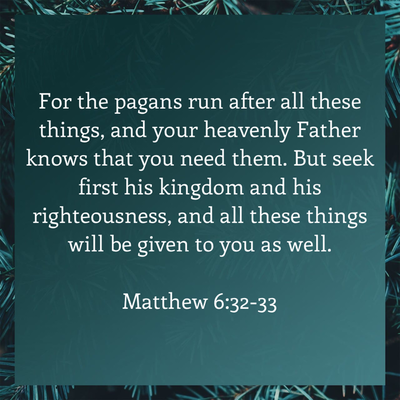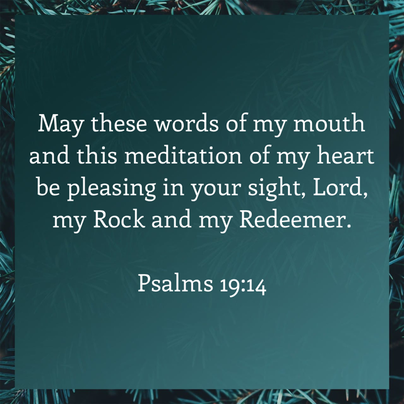|
Good morning!
We're so happy that you've decided to join us today!
When we met in person, we shared our joys and concerns together. Take some time to think about your past week, and your upcoming week. What joys or concerns do you have? If you would like, you can share those as a comment to this post. When you are ready, use the Prayer for Inner Peace below to get started.
Lord, please put Your peace in my heart.
I'm worried and anxious. My mind races and obsesses. I can't help thinking about my problems. And the more I think about them, the more depressed I become. I feel like I'm sinking down in quicksand and can't get out. Calm me, Lord. Slow me down, put Your peace in my heart. No matter what problem I have, Lord, You are bigger, You are more powerful than it is. So I bring my problem to You. I know what I want. I know my will. I do not know Yours. I do not know how You will use this problem for my salvation. I do not know what good You will workout from this evil. But I trust You. I trust Your goodness and Your wisdom. So I place myself in Your hands. Please fill my heart with peace. Amen.
As you read this week's lesson, think about the following question: Why should we not worry?
This week's lesson is on Matthew 6:25-34. Lesson Context This section of Matthew, chapters 5 to 7, is part of the Sermon on the Mount. These chapters contains many of the best known of Jesus' teachings. They address the weak and lowly, suffering, the pursuit of righteousness, and giving help to others. The passage that we are looking at is one of several places that Jesus talks about worry. Subjects under God's rule are to pray for God's will to be done in all the earth, dependent on him to supply the resources, grace, and strength that they need daily. They live in confidence that God is a kind, generous Father who gladly gives his children what they need to thrive. Lesson In this part of his sermon, Jesus says that God feeds the wild birds. God clothes the flowers in beautiful colors. For the people of Jesus' time, the birds, the flowers and the grasses were not terribly important or valuable. The birds are just there -- no one fed the wild birds like many of us do today. The flowers and grasses are ephemeral -- here today, and into the fire tomorrow. The majority of people at the time of the sermon were concerned only with survival. Based on the commentary, I though a lot about Maslow's hierarchy of needs. Essentially, a person must have their basic needs of food, water, clothing and shelter met for survival. This must happen before they can start thinking about almost anything else. Realistically, this was where many of the people listening to the sermon would have been. These people would have spent most of their time, energy and resources on survival needs. Jesus tells these people not to worry about meeting these survival needs because God will care and provide for the people who seek for his kingdom and righteousness. Our book makes an important point in this respect: trusting that God will take care of us does not mean that we shouldn't plan. We are supposed to take care of our gifts, and to be responsible in our decisions. The book references Luke 14:28-33, which talks about planning before an undertaking. This pre-planning is something that is important for our church as we begin our search for our new pastor. We have faith that God will provide for us, but we are preparing, especially financially, for this change.
While our book does not talk about it, I think there is another part to consider. I was reminded of a cartoon that I once saw. A man is in his house during a flood. He prays for God to save him. Some neighbors go past in a boat, and ask the man to get in. He says, "No. I'll wait for God to save me." The water gets higher, and the man is forced to the roof of his house. He again prays for God to save him. A rescue crew in a helicopter flies over, and tells the man to climb the ladder. He says, "No. I'll wait for God to save me." Unfortunately, the man dies in the flood. When he reaches heaven, he asks God, "I prayed and prayed for you. Why didn't you save me?" God replies, "I sent a boat, and I sent a helicopter. What else did you want me to do?"
While we have faith that God will take care of us, we need to recognize God's caring in the actions of others. The offer of help may be God's provision. Further, when we help others, we may be serving as God's hands in the world.
Conclusion
Applying the ideas in this lesson can be a huge challenge! We all worry a lot. But trusting God for the future, seeking his kingdom constantly as the first priority, makes us ponder how we use our time, where we place our efforts, how we relate to the people around us, and how we feel inside. We are free from the burden of worry when we submit to God. Worry does not keep us alive and well. Only God's provision can sustain us through the trials of life. And certainly only God can give us a life that triumphs over death. God's provision is powerful. He provides exactly what his people need. Trusting in God's provision is the antidote to worry. Prayer God our Father, give us confidence in your provision so that our worries are silenced! As you do, may we respond with trust so that our hearts will pursue your rule. Grant us strength in the Holy Spirit to pursue your righteousness as subjects in your kingdom. In Jesus' name we pray. Amen.
Benediction
Our benediction this week is from the New International Version.
Next week's lesson is on Matthew 8:23-27.
0 Comments
Leave a Reply. |
AuthorWe are a small, rural Presbyterian church in southwestern Pennsylvania. Archives
July 2024
Categories
All
|



 RSS Feed
RSS Feed